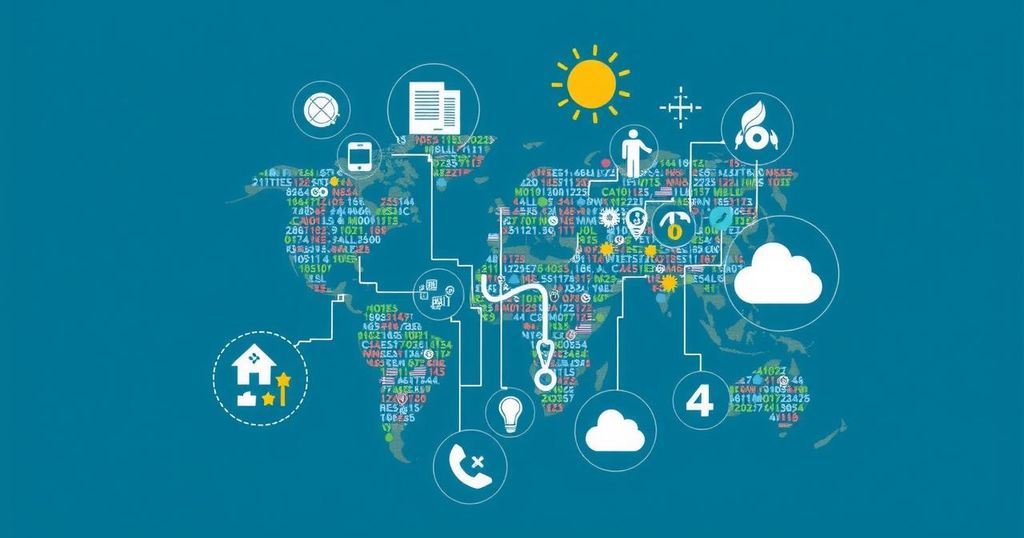COP29: Addressing Climate Change Through Public Health Integration
The 2024 UN Climate Change Conference, COP29, concluded with a $300 billion commitment to support developing nations addressing climate issues. The conference also emphasized the crucial relationship between climate change and public health, as numerous climate crises are impacting human health. Through various events and the contributions of the WHO, COP29 set the groundwork for integrating health in climate action discourse, crucial for future negotiations leading to COP30 in Brazil.
The conclusion of the 2024 UN Climate Change Conference, COP29, in Baku, Azerbaijan, marked a significant commitment toward supporting developing nations with a substantial $300 billion agreement. While deliberations were focused on climate finance, the conference also prioritized the intersection of climate change and public health. This emphasis emerged against the backdrop of unprecedented climate-related disasters impacting health across the globe, including disastrous hurricanes and extreme heat events fueling health crises, mental health concerns, and mortality rates from climate-induced incidents such as floods.
Significantly, Dr. Tedros Adhanom Ghebreyesus, director-general of the World Health Organization, highlighted the intertwined nature of climate change and health, stating, “We care about rising sea levels and temperatures because they take land and homes, they make our planet less habitable, they contribute to cardiovascular disease, and they fuel the spread of communicable diseases to new places.” Previous conferences, including COP28, had already initiated discussions on health’s role in climate action, culminating in health-focused events and declarations that accentuated the urgent need for integrating health considerations in climate policies.
At COP29, numerous sessions were dedicated to health-focused themes, emphasizing their importance in climate discussions. For example, the Wellcome Trust hosted discussions on the role of health in facilitating climate action, while the WHO released resources aimed at guiding countries on how to merge health with their climate action plans. As the world prepares for COP30 in Brazil, the foundation established at COP29 is crucial as delegations aim for enhanced dialogue and implementation of solutions that address the pressing nexus of climate change and public health.
The UN Climate Change Conferences, including COP29, serve as crucial platforms for international negotiations addressing climate issues. This conference specifically escalated discussions on the impact of climate change on human health, reflecting a growing understanding that climate-related phenomena, such as heatwaves, floods, and air pollution, significantly affect health outcomes. Amidst climate finance discussions, health was spotlighted as an integral aspect of climate action strategy, reaffirming commitments made in previous conferences. The increasing number of climate crises worldwide has necessitated a dedicated focus on public health ramifications, urging a more comprehensive approach in policy frameworks. Mental health impacts, exacerbated by climate anxiety among the younger population, as noted in recent studies, further emphasize the critical need for integrating health into climate strategies to mitigate these effects.
In conclusion, COP29 underscored an important shift in recognizing public health as a fundamental concern in the fight against climate change. The integration of health considerations into climate policy will be essential going forward, especially with the impending deadlines for Nationally Determined Contributions. The dialogue established at this year’s conference creates a pivotal framework for future discussions and actions aimed at addressing this intersection effectively, ultimately promoting a holistic response to both health and climate challenges.
Original Source: www.forbes.com




Post Comment